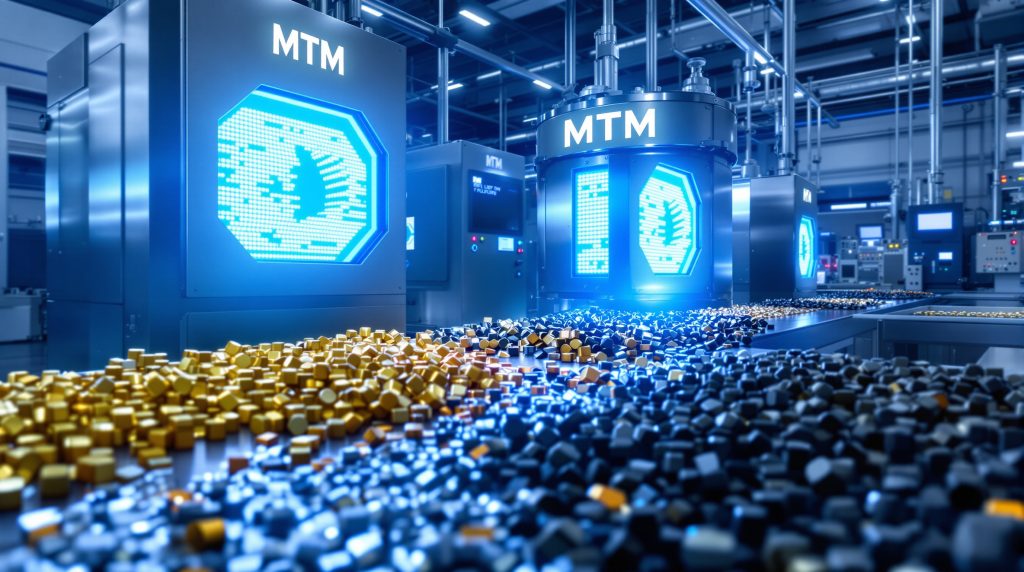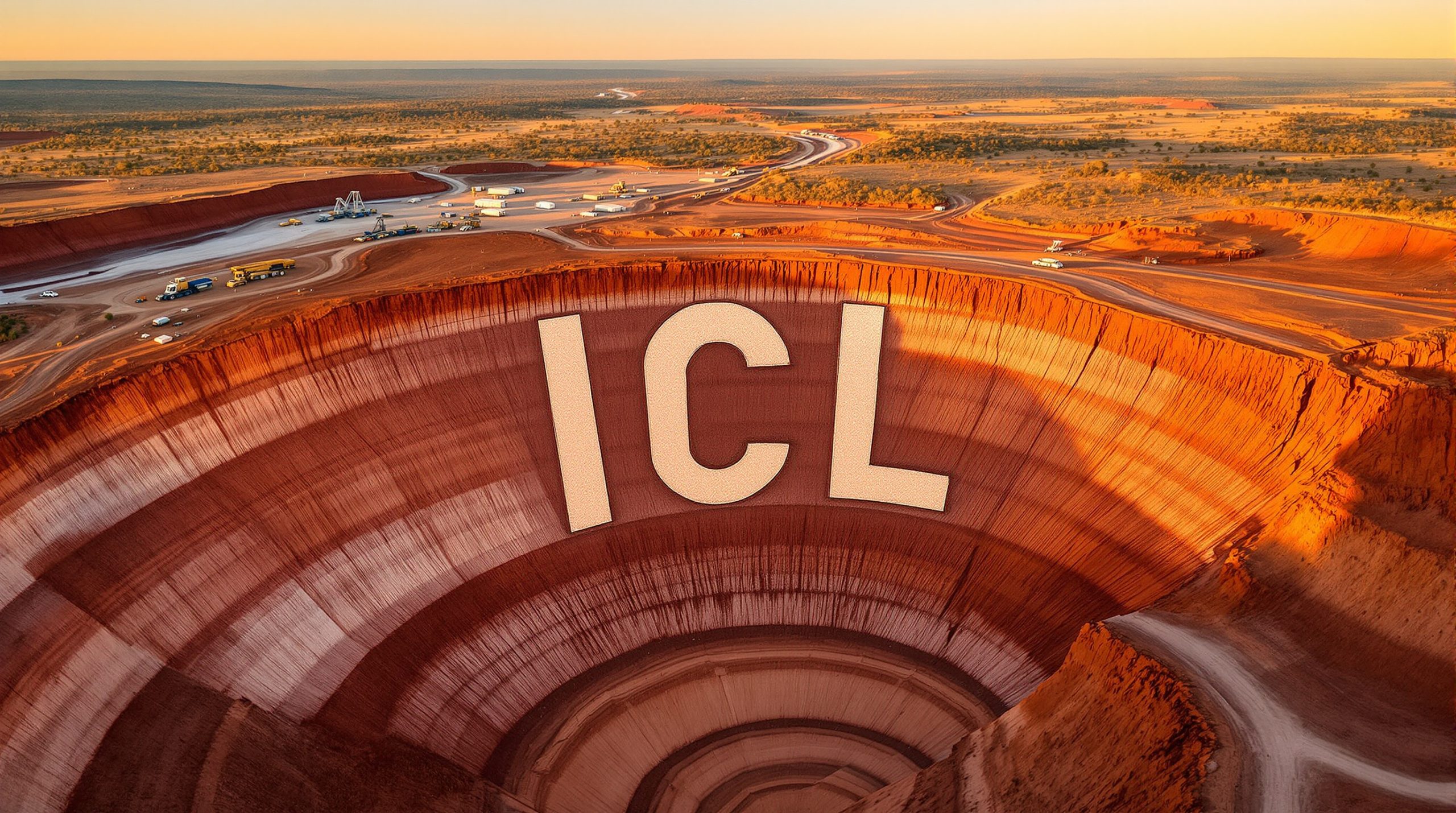Flash Joule Heating Revolution: Metallium's Game-Changing Approach to Rare Earth Recovery
Metallium Limited has unveiled a groundbreaking technological advancement that could reshape critical metals supply chains globally. In a major development, Rice University researchers have validated Metallium's patented Flash Joule Heating process combined with chlorination (FJH-Cl₂) for recovering rare earth elements from end-of-life magnets with unprecedented efficiency. The Metallium rare earth recycling technology represents a significant breakthrough in addressing critical supply chain vulnerabilities.
Breakthrough Technology Transforms Magnet Recycling
The peer-reviewed findings, published in the Proceedings of the National Academy of Sciences, demonstrate a revolutionary approach to recovering valuable rare earth elements (REEs) from discarded NdFeB and SmCo magnets. The process achieves >90% purity and >90% yield in mere seconds, compared to traditional hydrometallurgical processes that require many hours of acid leaching and solvent extraction.
What makes this development particularly significant is its environmental and economic advantages:
- 87% lower energy consumption
- 84% reduced greenhouse gas emissions
- 54% lower operating costs
- Complete elimination of acid and water consumption
"Rice University's breakthrough confirms what we see as the future of critical-metals processing: cleaner, faster, and vastly more efficient. The ability to recover rare earths from magnet waste at scale, with higher yields, lower costs, and zero acid or wastewater, represents a paradigm shift for global supply chains." – Michael Walshe, Managing Director & CEO of Metallium
How the Flash Joule Heating Process Works
The innovative process developed by Professor James Tour's team at Rice University involves a surprisingly straightforward methodology:
- Waste magnets are first demagnetized by calcining at 800°C for 30 minutes
- The resulting brittle powders are ground and sieved to <53 µm
- The powder undergoes Flash Joule Heating with chlorine gas flow inside a quartz-tube reactor
During this rapid heating process:
- Transition metals (Fe, Co, Cu, Ni, Mn) form volatile chlorides with lower boiling points and are removed
- Rare earth oxides convert to stable oxychlorides, remaining as concentrated residues
- The separation occurs in seconds, without solvents, acids, or wastewater
This represents a dramatic improvement over conventional methods:
- Hydrometallurgy: Requires acid leaching, multi-stage solvent extraction, produces large wastewater streams
- Pyrometallurgy: Involves smelting at very high temperatures with heavy energy consumption and secondary waste
Understanding Flash Joule Heating Technology
Flash Joule Heating is a novel technique that applies a brief, high-intensity electrical pulse to conductive materials, generating rapid temperature increases of 1,200-2,000°C within seconds. This ultrafast heating creates unique reaction conditions that enable chemical separations impossible through conventional methods.
The process works by passing high-current electrical pulses through a conductive substrate, generating extreme localised heating without requiring external furnaces. When applied to rare earth recovery, this targeted heating in a chlorine atmosphere selectively volatilizes unwanted elements while preserving valuable rare earth components.
Key advantages of this approach include:
- Minimal infrastructure requirements compared to conventional refining
- Low energy consumption due to precise, targeted heating
- Rapid processing times measured in seconds rather than hours
- Elimination of hazardous chemicals typically used in hydrometallurgical processes
Understanding Rare Earth Magnets: Critical but Vulnerable Supply Chains
Permanent magnets—particularly NdFeB (neodymium-iron-boron) and SmCo (samarium-cobalt)—are essential components in modern technology, including electric vehicles, wind turbines, defense systems, and high-efficiency motors. These magnets account for over 90% of global rare-earth magnet demand.
Despite their importance, the supply chain has significant vulnerabilities:
- 10-20% of magnet material is lost during manufacturing as machining or polishing scrap
- End-of-life magnets from EVs, wind turbines, and electronics create growing waste streams
- Most waste material is either exported to Asia or sent to landfill due to prohibitive processing costs
- Nearly all refining and recycling capacity is currently controlled by China
This represents a major lost resource containing critical elements such as neodymium, dysprosium, samarium, and cobalt—elements essential for the clean energy transition and national security applications.
Rare Earth Elements: The Technology Metals
Rare earth elements consist of 17 metallic elements including the 15 lanthanides plus scandium and yttrium. Despite their name, most rare earths are relatively abundant in the Earth's crust, but they rarely occur in concentrated, economically viable deposits.
Their unique electronic, optical, and magnetic properties make rare earths indispensable in modern technology:
| Element | Key Applications |
|---|---|
| Neodymium (Nd) | Permanent magnets for EVs, wind turbines, speakers |
| Praseodymium (Pr) | Combined with Nd in magnets, yellow glass, ceramics |
| Dysprosium (Dy) | Improves magnet performance at high temperatures |
| Terbium (Tb) | Magnets, phosphors, solid-state devices |
| Samarium (Sm) | High-temperature magnets, nuclear reactors |
The most critical supply vulnerabilities exist in heavy rare earths like dysprosium and terbium, which are essential for high-performance applications but have limited production outside China.
Breaking China's Rare Earth Dominance
China's recent expansion of export restrictions on rare-earth metals, refining equipment, and process technology has heightened the urgency for independent Western supply chain solutions. Beijing now requires government approval for products containing even trace amounts of rare-earth material.
Metallium is strategically positioned to address this challenge through:
- Exclusive commercialisation rights to the Flash Joule Heating technology
- Binding collaboration with Ucore Rare Metals Inc. to create the first fully U.S.-based rare-earth refining pathway
- Versatile processing capabilities for both primary and recycled feedstocks
The integration of Metallium's FJH upgrading process with Ucore's RapidSX™ separation technology creates a modular, China-free refining system capable of processing diverse materials from mine concentrates to industrial residues—a level of flexibility unmatched in current Western supply chains.
Strategic Importance of Western Rare Earth Supply
The rare earth supply chain has emerged as a critical national security concern for Western governments. The U.S. Department of Energy's 2023 Critical Materials Assessment classified several rare earth elements as high-risk for both supply disruption and impact on clean energy deployment.
Current Western rare earth projects face significant challenges:
- Most require sending concentrates to China for final separation
- Projects typically focus on only certain segments of the supply chain
- Many lack capabilities to handle the full range of rare earth compositions
Metallium's approach addresses these limitations by providing a complete, domestic processing solution applicable to multiple feedstock types, creating strategic supply chain resilience.
From Laboratory Success to Commercial Reality
Metallium is now taking concrete steps to transition this breakthrough technology from laboratory success to commercial deployment. The company will adapt the Rice University findings to its pilot-scale prototype system in Texas, advancing its vision of building a national network of clean-tech metal recovery facilities in the United States.
The Texas Technology Campus will serve as the hub for this ambitious plan, housing the first commercial FJH plant while functioning as a centre for ongoing R&D and future expansion.
Commercial Implementation Timeline
The pathway to commercialisation follows several distinct phases:
- Laboratory validation – Completed with Rice University's published results
- Pilot-scale demonstration – Currently underway at Metallium's Texas facility
- Commercial-scale implementation – Planned expansion at the Texas Technology Campus
- Network deployment – Future facilities targeting strategic locations across the U.S.
This phased approach allows for continuous technology refinement while generating initial revenue streams from the pilot operations, providing a clear path to full commercial implementation.
Why This Matters for Investors
Metallium's breakthrough represents a potential inflection point in critical metals recovery and refining:
- First-mover advantage in a technology that addresses critical supply chain vulnerabilities
- Strategic alignment with U.S. national priorities for secure, domestic critical mineral supplies
- Compelling economics with significantly lower operating costs and higher recoveries than conventional methods
- Environmental superiority through dramatic reductions in energy use, emissions, and elimination of waste streams
- Versatile applications beyond magnets to other critical metal recovery opportunities
With China tightening its grip on rare earth supplies and Western nations prioritising domestic supply chain security, Metallium rare earth recycling technology positions the company at the nexus of national security priorities, clean energy transition needs, and circular economy imperatives.
The company's progress from scientific validation to pilot-scale demonstration represents a clear commercialisation pathway, giving investors visibility into how Metallium intends to capture value from its technological leadership in establishing an independent U.S. rare-earth refining and recycling capability.
As global demand for rare earth elements continues to accelerate while supply chain vulnerabilities persist, Metallium's breakthrough positions the company to potentially emerge as a key player in reshaping how these critical materials are sourced, processed, and recycled in Western economies.
Want to Capitalise on Metallium's Rare Earth Revolution?
Discover how Metallium's groundbreaking Flash Joule Heating technology could transform critical metals supply chains and potentially deliver significant returns for early investors. With exclusive commercialisation rights and a clear pathway to becoming a key player in Western rare earth supplies, Metallium presents a compelling opportunity at the intersection of national security, clean energy transition, and technological innovation. Register your interest today to access detailed investor information and stay updated on Metallium's progress in reshaping critical minerals recovery.




